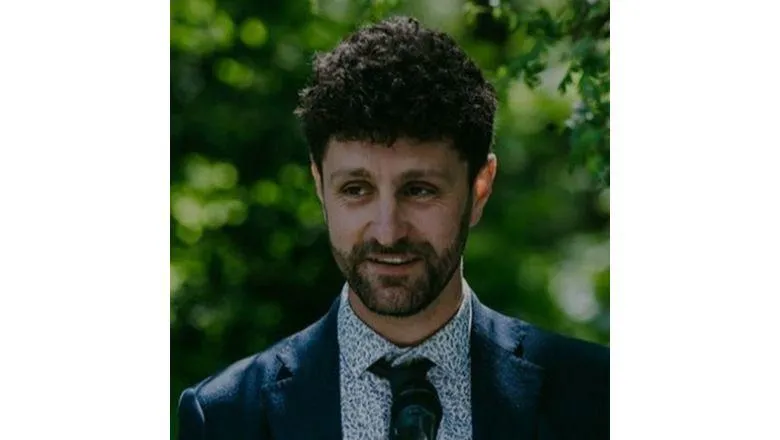It’s an honour to be recognised by my peers – that people are paying attention to my work and that they are appreciating it.”
Dr Jon Roozenbeek
08 July 2025
War Studies lecturer receives prestigious international research award
Dr Jon Roozenbeek, Lecturer in Psychology and Security in the Department of War Studies, has been honoured with the Jim Sidanius Early Career Award for work in Political Psychology, by the International Society of Political Psychology (ISPP).

Since 1982, the award has been given individuals each year to recognise and celebrate exceptional achievement, within ten years of receiving their PhD. This year, two winners are being recognised. For Dr Roozenbeek, it acknowledges his substantial accomplishments studying misinformation, war, and media effects.
Jon’s fellow winner is Dr Emily Kubin, Visiting Researcher at the University of Oxford.
Studying societal challenges
Dr Roozenbeek has spent several years researching what leads to us believe things that are not true, particularly in times of high stress or conflict. His research career started with a PhD awarded in 2020 from the Department of Slavonic Studies at the University of Cambridge, where he worked on how propaganda shaped social and political identities in Donbas during the Russian-Ukrainian War. This work resulted in his first book, Propaganda and Ideology in the Russian-Ukrainian War (Cambridge University Press, 2024), in which Roozenbeek argued that Russia’s propaganda mission was haphazard and inconsistent, and failed to convince especially Russian-speaking Ukrainians that they would be better off under Russian rule.
In 2017, Roozenbeek also started working with the Department of Psychology at Cambridge to develop and test the multiple award-winning browser game Bad News – a gamified approach to building psychological resistance to online misinformation. He also led numerous studies into why people believe and share (mis)information, how people cluster into insular online communities or “echo chambers”, and how to counter extremist propaganda and vaccine misinformation. Along with over 60 research papers, this work culminated in his second book, The Psychology of Misinformation, also published by Cambridge University Press in 2024.
While the Jim Sidanius award largely recognises these two weighty areas of work, more recently Dr Roozenbeek’s research interests have included the ethics of Artificial Intelligence – how AI can be used for good or evil – as well as what makes people support authoritarian leaders, and the marketplace that sells online manipulation (fake likes, bot comments, and political influence operations).
Championing self-critique in science
A key interest of Roozenbeek has been the publication and interpretation of null results. He believes that publishing and discussing experiments and studies that “failed” (meaning that your hypotheses couldn’t be confirmed) is a prompt to challenge one’s own assumptions in science and research:
I think my best work is that which has challenged my own previous work. Going back to your initial assumptions and being appropriately self-critical without being self-flagellating.”
Dr Jon Roozenbeek
The ISPP is an interdisciplinary organisation representing all fields of inquiry concerned with exploring the relationships between political and psychological processes. Members include psychologists, political scientists, psychiatrists, historians, sociologists, economists, anthropologists, as well as journalists, government officials and others.
The Sidanius award was formally announced at the ISPP conference in Prague from 3-6 July. Roozenbeek joins a distinguished list of former recipients, who are among the most prominent leaders in political psychology today. It undoubtedly singles him out as an early career researcher who has made a hugely substantial contribution to his field. But Dr Roozenbeek remains keen to acknowledge how significant research collaboration has been in all he has achieved and the results it can bring to the community as a whole:
I did not do this work on my own – it’s very much the result of a collective effort and generating better scholarship over time. This is an individual recognition for a group effort.”
Dr Jon Roozenbeek
Jon Roozenbeek teaches two MA modules at King’s: Disasters and Extreme Events and Responding to Terrorism. His publications span books, research papers and policy papers.
